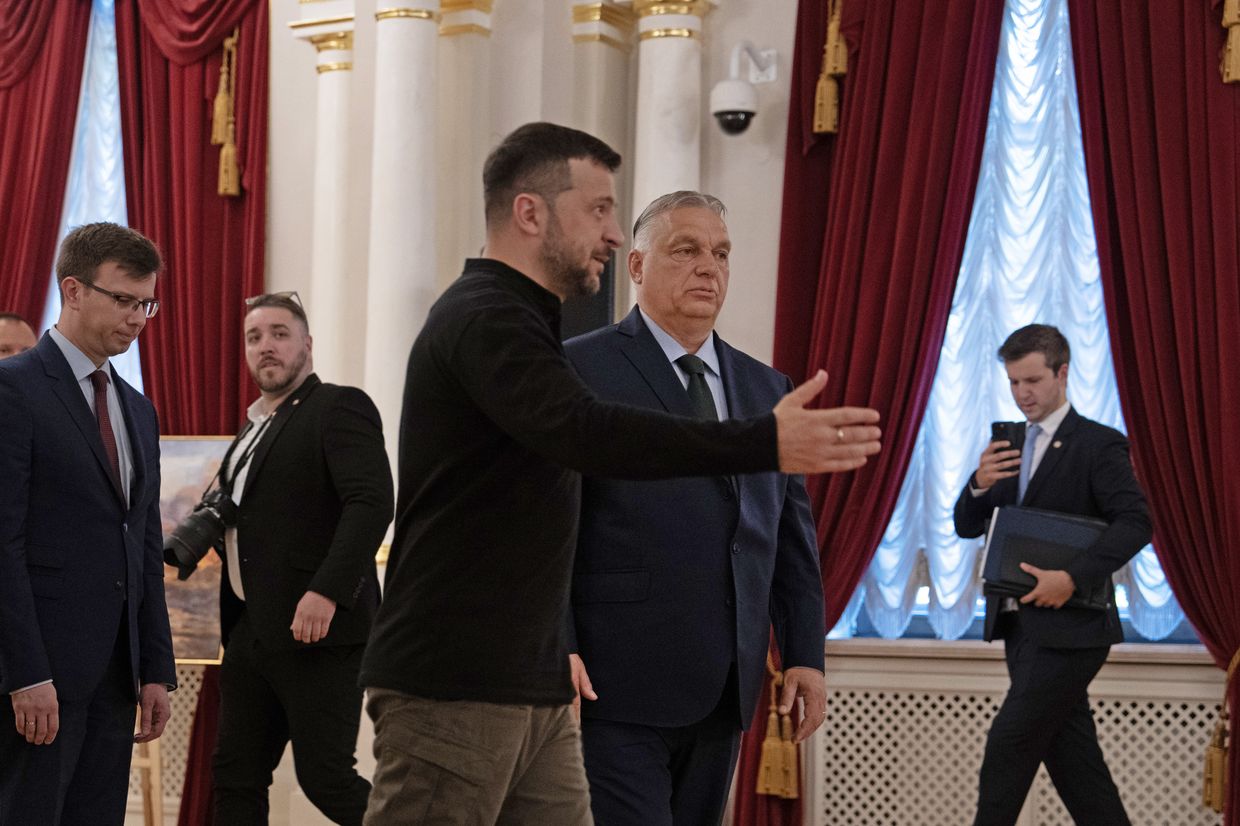Orban arrives in Moscow days after Kyiv trip.
Support independent journalism in Ukraine. Join us in this fight.
Become a member Support us just onceEditor's note: This is a developing story. Hungarian Prime Minister Viktor Orban arrived in Moscow on July 5, just days after his first trip to Ukraine since the beginning of Russia's full-scale war, Orban's press office told the media. Orban last visited Russia in September 2022 to attend the funeral of Soviet leader Mikhail Gorbachev, but did not meet with Russian President Vladimir Putin at the time.
Budapest has repeatedly opposed Ukraine's accession to NATO and the EU, sanctions on Russia, undermined Western aid efforts for Ukraine, and maintained close relations with Moscow throughout the full-scale war. Orban and Putin held talks in Beijing in October 2023 at the Belt and Road Forum. The Hungarian prime minister was the only leader from the European Union to attend the summit.
The prospect of Orban traveling to Russia, especially after Hungary had just acquired the rotating presidency of the Council of the European Union, angered many in the EU. European Union Council President Charles Michel said that Hungary, in its role as the current rotating presidency of the Council of the EU, "has no mandate to engage with Russia on behalf of the EU." The EU further emphasized that Orban's visit to Russia was "not representing the EU in any form."
In an interview with the Hungarian media outlet Telex released on July 5, Orban agreed that he did not have the mandate to hold peace talks, but said that Hungary could be "a good tool in the hands of people who want peace." "It is difficult to measure the impact of such a meeting (on peace talks). Hungary must know its place and its weight, and the peace talks will be handled by larger countries," Orban added.
In a post on X earlier in the day, Orban said, "You cannot make peace from a comfortable armchair in Brussels."
Orban's Kyiv, Moscow trips test boundaries of EU presidency, expert says
Viktor Orban's steps show that he is "playing a different game and using the vacuum while the compositions of these (EU) institutions are changing" after the European elections, said Pavel Havlicek, a research fellow at the Association for International Affairs.
